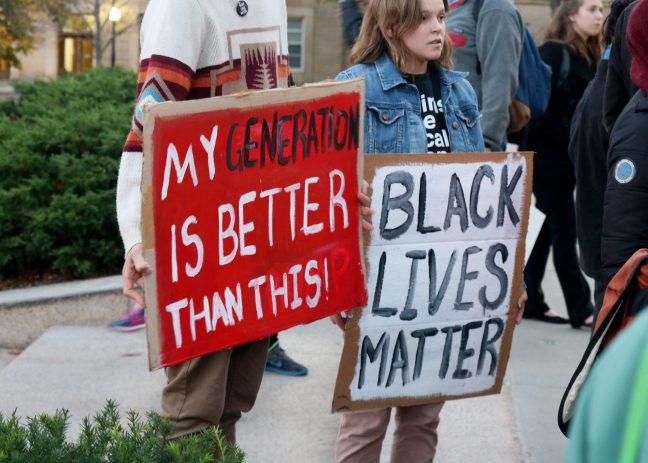On June 15th, 1920 a white mob dragged three black men, Isaac McGhie, Elmer Jackson and Elias Clayton, from their jail cell, and savagely beat them before lynching them. While unspeakably brutal, this triple murder was not particularly uncommon for the time period. According to the Equal Justice Initiative, more than 4,000 African Americans were lynched between 1877 and 1950. However, this instance stands out due to its location: Duluth, Minnesota.
The mob which killed McGhie, Jackson, and Clayton numbered between 1,000 and 10,000, and was motivated by the erroneous rumor that a young white woman had been raped. While three members of the mob would be sentenced for rioting, they served less than 15 months in prison. Nobody was ever convicted of murder.
While the murders were decried across the North, many in the area actually welcomed the news. The police chief in Superior, Wisconsin — just across the river from Duluth — applauded the action, calling for the city to “run all idle negroes out of Superior.” Some of the chief’s hopes for an ethnic cleansing of his city came true, with several African Americans being forced to leave.
Ignorance, racism must be tackled by UW students, faculty through complete eradication of ignorance
Growing up in the Twin Cities, I knew Duluth as the fun place you’d drive to in the summer for family vacations. It has stunning views of Lake Superior, good restaurants and a growing number of breweries. Similar to Madison, it’s a fairly typical Upper Midwestern city with many residents priding themselves on progressive values. It’s not a place people associate with barbaric, racially motivated violence.
While the majority of lynchings took place in the South, viewing it and by extension subjugation based on race as an exclusively Southern problem harms our understanding of present-day America. Because our area of the country avoided most of the worst violence associated with enforcing a racial caste system, it’s all too easy to assume that, surely, a state such as Wisconsin is doing a better job of dismantling racism than, say, Mississippi. However, Wisconsin’s continuing school achievement gap, Milwaukee’s segregation and the impunity with which police officers in the Upper Midwest kill black men suggests that racial subjugation is not a Southern problem.
Panel discusses how history of racism, white supremacy played role in Charlottesville
Viewing our history of race relations as one of tranquility compared to the terror present in the South makes us less likely to acknowledge and confront racism today. The reality we live in today was shaped by violence and oppression that could be every bit as heinous as that found in the South. But, there is not a widespread understanding of the North’s shameful history — no attempts to come to grips with the acts carried out to further white supremacy.
We act as if those events didn’t happen, as if “To Kill a Mockingbird” could only happen in rural Alabama. This omission doesn’t just harm our understanding of our current society, but it’s an insult to three young men killed in Duluth.
Will Maher ([email protected]) is a sophomore majoring in history and international studies.





















